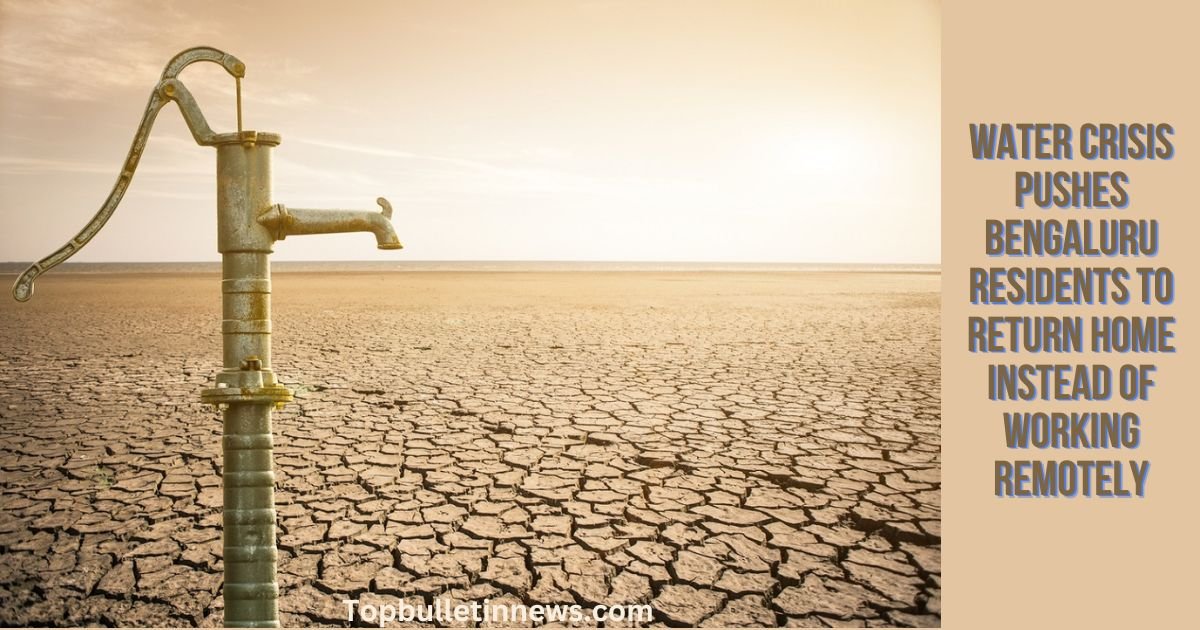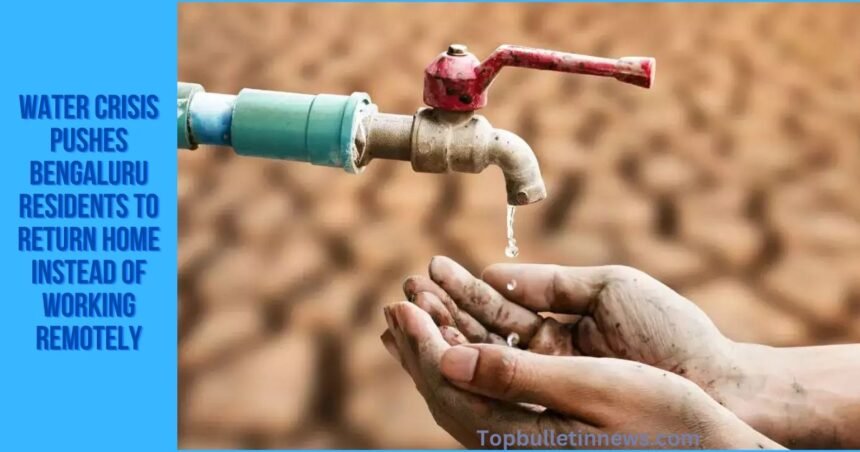When questioned about the impact of the city administration’s directive to regulate tanker water prices, a resident remarked, “While the rates have indeed stabilized, the underlying issue persists. Delays in tanker deliveries persist due to overwhelming demand.”
As a woman resident of a local apartment complex prepared to depart for work, she shared her concerns about the escalating water crisis when approached by NDTV. “With a baby in the household, the situation is incredibly challenging. Despite the government’s price reductions, tanker deliveries are scarce. And even when they do arrive, the water provided is insufficient. It’s uncertain when this crisis will be resolved, and when we can return to our usual routines,” she lamented.
When questioned about their optimism regarding improved conditions with the arrival of the monsoon, a resident highlighted issues with the implementation of development projects by successive governments. “There has been a neglect of the overall welfare of the people. While there’s been a focus on constructing apartments and roads, attention to replenishing groundwater levels has been lacking. In my fifteen years here, I’ve never witnessed any substantial efforts in this regard from any government,” he remarked. He further noted the distressing sight of people enduring kilometer-long queues just to access drinking water.
A resident mentioned that he had only taken five baths in the past month.

Bengaluru relies mainly on two water sources: the Cauvery River and groundwater. Recycled water from sewage treatment plants is predominantly used for non-drinking purposes. However, with a prolonged absence of rain, these primary sources are under immense strain. The city requires 2,600-2,800 million liters of water daily, but the current supply falls significantly short of this demand. Consequently, residents face a daily battle for sufficient water resources.
In response to allegations of extortion, authorities have taken action by implementing fixed rates for water tanker services in residential zones. Additionally, fines have been introduced for instances where drinking water is used for purposes such as cleaning vehicles, gardening, or construction activities.
The water shortage has impacted hospitals as well. For instance, Brookfield Hospital in the parched area near Whitefield relies on water tankers, requiring 24,000 liters over three days. Moreover, the dialysis unit alone requires an additional 5,000 liters of water daily.
Dr. Pradeep Kumar, a medical officer at Brookfield Hospital, explained, “We’re implementing water recycling measures, combining recycled water with conventional sources for washing and cleaning purposes.”
Bengaluru boasts a substantial population of migrant tech professionals drawn to its IT hub for its abundant opportunities. Now, amid the water crisis, many are considering work-from-home arrangements to reduce their water consumption.
Expressing her viewpoint, Shruthi, an engineer, stated, “While work-from-home appears to be a feasible solution, its effectiveness hinges on individuals actually returning to their homes, thereby reducing the population density and subsequently decreasing water usage.”
Despite Bengaluru’s parched condition, the political landscape simmers with tension. The opposition BJP has issued warnings of forthcoming protests, with Bengaluru South MP Tejasvi Surya accusing the Congress government of neglect. “The government’s failure to implement preventive measures has led to this dire water crisis affecting the people of Bengaluru,” he asserted.
Deputy Chief Minister DK Shivakumar has dismissed the accusations, suggesting that the BJP should direct their protests towards projects like Mahadayi in Delhi. “Figures like (former Chief Minister) Jagadish Shettar and (Union Minister) Prahlad Joshi would also stand to benefit from access to drinking water,” he remarked to the media. The Mahadayi project aims to channel river water to drought-stricken regions of Karnataka.
The current circumstances have prompted cricket authorities to contemplate whether the M Chinnaswamy cricket stadium can accommodate IPL matches later this month.
At a local coffee shop, another group of friends shared their thoughts on the challenging situation. When questioned about the effectiveness of government measures in the long term, one of them remarked, “It’s just empty promises. I doubt the government will improve our quality of life.”
Residents mentioned that they gather at the coffee shop daily following their badminton sessions. “We reside in Pragati township. Last year, the government installed nine borewells for us. Until last month, we had a steady water supply from them, but suddenly we discovered that all the borewells have run dry. Acquiring water from tankers has become extremely challenging as bookings need to be made well in advance. Previously, we paid around ₹700-800 for water, but now the cost has surged to ₹1,500-2,000, even in March. We’re uncertain about the future if the rains don’t arrive. Although the civic body has introduced online water supply services, they haven’t been activated yet. The looming question is whether, if the government takes control of the tankers, we’ll receive water promptly.”
Residents emphasized that resolving the situation would not happen swiftly. “Simply digging more borewells or providing additional tankers won’t suffice. The government needs to devise a long-term plan spanning at least 20 years. Only then can we hope for a permanent solution to this problem,” expressed a resident.
Another individual remarked that not all responsibilities can be shouldered by the government alone. “It’s crucial for the people of Bengaluru to actively conserve water. We need to seek out solutions ourselves. We can’t rely solely on the government. Taking personal initiatives to conserve water is equally important and will contribute significantly to addressing the crisis,” he emphasized.










